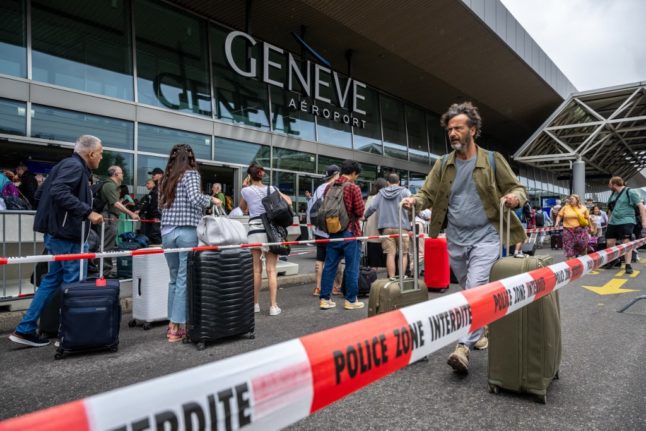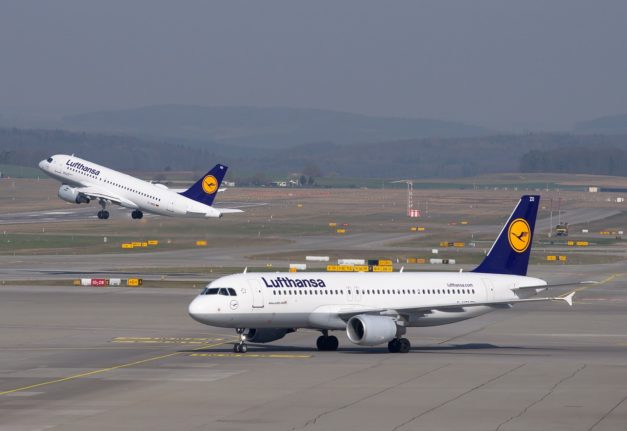Originally scheduled for Friday morning between 6am and 10am, the staff voted to prolong the walkout until the end of Saturday.
READ ALSO: Flights cancelled at Geneva airport as strike extended into Saturday
An airport spokesman said that some 8,000 passengers were estimated to be affected by the cancellations at Switzerland’s second airport, a key hub for SWISS airline as well as the EasyJet budget carrier.
As Swiss media kept reporting, and updating, strike news on Friday, comments on social media and on online forums took a decidedly anti-French slant.
The reason for this hostility is that as Geneva’s airport is located right on the Swiss-French border, the vast majority of its employees are from France.
They overwhelmingly work in positions such as baggage handling, security, logistics, catering, and other essential airport services.
So the irritation has been directed at the French employees, who are blamed for starting a strike that is disrupting many people’s holiday plans.
‘We are going to become like France’
On the website of Geneva’s daily newspaper, Tribune de Genève, dozens of people vented their anger at their neighbours from across the border.
“And what country are these strikers from? That’s what happens when only cross-border workers are hired! Congratulations to Geneva for all these work permits,” one commentator said.
This person is referring to G-permits that the canton gives out to workers from France.
READ ALSO: G-permit: How Geneva’s cross-border workforce has grown
“A shame that Geneva is really no longer a Swiss airport,” another person said, while yet another remarked that “we are going to become the new France… great.”
“They are hiring French people, and this is the result,” someone else commented. “In addition, they dare to demand a salary increase while they live in France like kings!”
Another said: “Well done border folks! You have already ruined France…”
And another comment read: “Long live France and its methods of vindictive trade unionists … fed up with these people who are ruining my life.”
“The strike is not part of our culture and this hostage-taking of the population is just unbearable.”
This last comment brings up the fact that strikes are a relatively rare phenomenon in Switzerland, so there is resentment when they are seen as being forced by their neighbours.
READ ALSO: Why does Switzerland see very few strikes compared to France or Germany
The anti-French backlash
The strike has disrupted many people’s travel plans this weekend, so a certain level of anger at the situation may be understandable.
In general, however, the more than 100,000 cross-border commuters from France — also known as frontaliers — are a boost to Geneva’s economy, working primarily in sectors like healthcare, retail, and hotel and restaurant industry.
Yet, even though most of Geneva residents know that the canton’s economy would not do well without cross-border workers, they still routinely blame the French for ‘sins’ ranging from poor service in shops and restaurants, to crime.



 Please whitelist us to continue reading.
Please whitelist us to continue reading.
Member comments